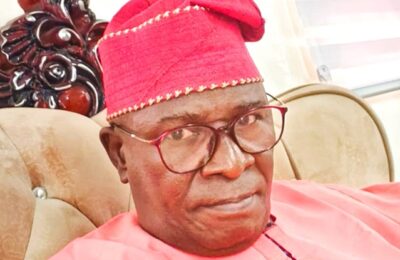Lokoja, the capital of Kogi State, is an embryonic city of many parts. If the historical account is anything to go by, the story of Lokoja is the history of modern Nigeria. The Lokoja pride is the confluence of Rivers Niger and Benue which flow down south of the country into the Atlantic Ocean.
The two great rivers that confluenced in the city remain the only Midas touch that drew the colonial masters to the Niger area then, which feathered their economic interest at home. The strategic location of the capital city made the activities of the British adventurers, explorers, missionaries and traders to develop it and became the capital of colonial Nigeria.
The legacy of this colonial touch had made the ancient Lokoja to have an edge over any town/city in the confluence of today, as per scheme of things or machine of development. The cumulative effect is therefore the status Lokoja is enjoying in modern Nigeria.
Historical account posits that the ancient Lokoja came to limelight by the activity of two imperialist agents, Sir Tubman Goldie, and Frederick Lugard, when they chose the ancient city as the capital of British’s Royal Niger Company, RNC.
Goldie, charmed by Lokoja endowments, and describing it as “a natural gift of the rivers” that merited being the capital of the RNC, proceeded to establish a British consul in the ancient city to stretch his influence and authority, both up and down the river (Niger/Benue) and its tributaries, for economic gain.
Besides the river factor, the natural lush vegetation and the topography of the confluence, including the inhabitants, are allures that drew the agent of imperialism to berth their economic ships in the ancient city.

Given credence to this was the publication of ‘The Times’ of London in 1898 edition in which the writer described Lokoja as “a camp” of many colours. In the said edition, the writer said lokoja is “a town with at least 100,000 inhabitants” that “are skilled in the making of leather articles, and also spears”.
Stressing further, he said “there are magnificent trees and plenty of grass; “high hills and plenty of games are observable in the district, chiefly, leopard and antelope.” The value the colonial masters attached to Lokoja’s natural endowments and which made them to settle in it laid bare the importance of Lokoja to the outside world, and as such has made the modern Lokoja thick in the country.
However, it took the flooding of 2012 to establish the modern Lokoja as a potential life wire of the modern Nigeria. The transfer of the capital of Nigeria from Lagos to Federal Capital Territory, FCT, Abuja, has bettered its status, as it made Lokoja a gate way to the seat of power of the nation. It is noted with great concern that people from South-South, South-East, South-West and of course part of North-Central use Lokoja as a transit route to the FCT and northern region of the country.
According to Rajan Suleiman, the director general of Kogi State Chamber of Commerce and Industry, many are unaware of the importance of Lokoja until the flood disaster. Stressing that the chaotic situation in Lokoja could be better imagined than reality, he said for over two weeks that the flood cut off Lokoja, no movement from the entire southern region was possible, leading to total economic paralysis within that period.
“For two weeks, no person or vehicle could reach the FCT and beyond because of the flooding which cut off the only link road at Lokoja. The national economy was badly affected; over 5,000 trailers were forced to stop in the city, besides the thousands of travellers that were stranded,” Suleiman lamented.
He advised the federal government to as a matter of urgency complete work on the Bagana-Guto Bridge to link up Kogi and Nassarawa to the FCT at that end in order to ease off pressure on the present Lokoja-Abuja Highway.
Equally, a Lokoja based human right activist, the executive director of Human Right Centre and Conflict Resolution, HRCR, Idris Miliki expressed that lokoja occupied an important place in the country because of its historical past. He noted that this potential can be developed to fetch foreign exchange for the country, saying that some of the historical sites like the first primary school in the northern region, place where Royal Niger Company’s flag was lowered for British Union Jack; and Lord Frederick Lugard’s office and Rest House, among others are tourists delight.
However, he lamented that despite the place of Lokoja in the colonial past which led to the emergence of modern Nigeria, the city remained at the lowest level of development because of outright neglect by subsequent administrations.
He said if nothing at all, the federal government should be moved and takeover of Lokoja’s Mount Patti where “Niger area” was christened “Nigeria,” the name of the country today.





